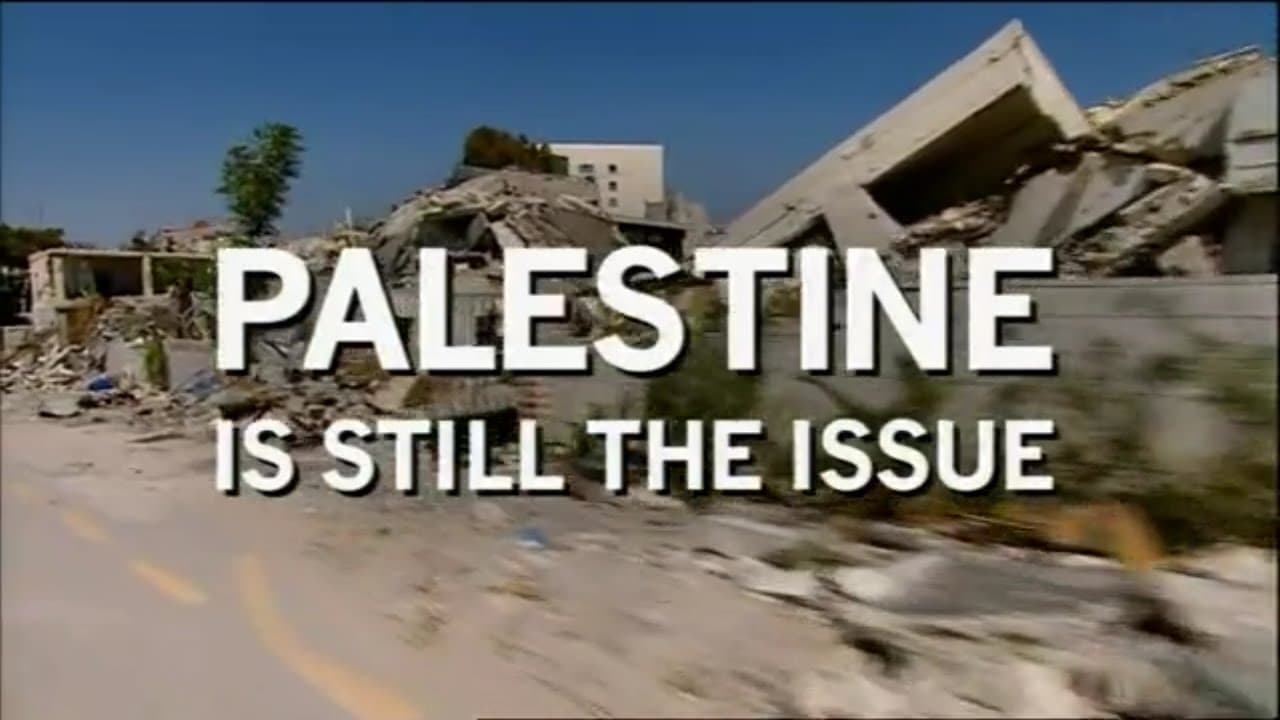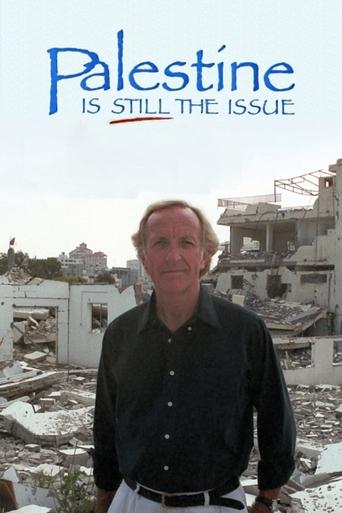SpuffyWeb
Sadly Over-hyped
SparkMore
n my opinion it was a great movie with some interesting elements, even though having some plot holes and the ending probably was just too messy and crammed together, but still fun to watch and not your casual movie that is similar to all other ones.
Roman Sampson
One of the most extraordinary films you will see this year. Take that as you want.
Cissy Évelyne
It really made me laugh, but for some moments I was tearing up because I could relate so much.
m-ozfirat
The renowned and exceptionally excellent journalist John Pilger looks at the reality of the situation in Palestine with out a political agenda as done by other reporters. The reality behind the conflict is not dual as reflected in the mainstream but against an occupying and expanding state oppressing the majority population whilst enforcing segregation and getting global aid for it. The Arabs have very little and within this analysis Pilger investigates how the Palestinians have fought of Western* expansionism within the Levant and the majority of Israelis desire for a normal country Pilger goes in to the historical background and origins of the conflict as an overview and here he should of added more detail. He interviews the Israeli authorities an their ignominious attitude towards expansionism not accepting the original plan that Israel would only have half of Modern Palestine that corresponded to Ancient Israel. But there are also those Israelis who genuinely want peace and the original border definitions for the basic right of a normal life and in his interviews with the Israelis the majority of ordinary people adhere to this attitude. to conclude this documentary paints the reality of the situation of Palestine and fairly gives both sides of the argument with facts, politicians and peoples desires for a normal life one that should with compulsion be reported in the mainstream media. Critics will label this Anti- Semitic because they don't like what they hear. the documentary does not encourage hatred of an entire people but is rational in purely political analysis to solve the border problems before things get out of control. *I say Western expansion not Israeli because the country itself is a western state and is affiliated more with the EU then the Middle East with the financial support of America for a foothold in the area.
Alain English
John Pilger tackles another hot topic in a documentary about the Israeli occupation of Palestine and the effects of this occupation on Israelis and native Palestinians. Pilger likens the occupation to South Africa's apartheid regime, and goes against much of the usual coverage of the conflict which he says has tended to be biased towards the occupying Israelis against the Palestinians, whose desperation has turned some of them towards suicide bombing.Pilger looks at both sides of the argument here, talking to Palestinians affected by the occupation but also dissenting Israelis who refuse to serve in the Occupied Territories. He also examines the history of modern Israel, and how a recent compromise by Yassir Arafat (head of the Palestine Liberation Organisation) with the occupying Israelis did virtually nothing for ordinary Palestinians and in fact paved the way for the occupation to get worse.This is capped by an interview with Dori Gold, Israel's senior adviser to the Prime Minister Ariel Sharon. Pilger can occasionally be judgemental when interviewing political figures, allowing his accusations to get in the way of the interview. This doesn't happen here and Gold's words in themselves display his complicity in his own governments terrorism and occupation, along with total disregard for the Palestinians. This is backed by Western governments, who supply the occupying forces with arms in return for looking after their oil supply.Pilger's examination of history, while strong, could have been more thorough. As it is, it seems a little sketchy in places and I would liked more detail to have been shown, particularly on the founding of modern Israel.Pilger ends the documentary for a plea for compassion for the Palestinians and to end the destructive silence on their plight. He also looks for a solution to the problem which has become marred in endless negotiation and violence.
lbohne
British writer DH Lawrence once classified the passion for justice as the finest and noblest of all emotions. John Pilger's accurate and fair account of the conflict between Palestine and Israel is one of the finest examples of this passion. Pilger is now teaching at Cornell University and is the recipient of countless journalistic awards. A renowned veteran war reporter, he has covered some of the most war-torn regions of the world: Vietnam, Cambodia, East Timor, Afghanistan and many others. Only the most sullen opponents to his commitment to freedom and justice would deny him the status he enjoys as a first-class journalist."Palestine Is Still the Issue" is a must-see for Americans, who are kept in the dark by the media and political elites by the real nature of the Israeli-Palestinian conflict. It is a conflict about land, which the documentary makes clear. The brutality of the Israeli Defence Forces (IDF) in dealing with the people it occupies--the Palestinians--is, indeed, uncomfortable to watch for people who wish to shrink from the truth, but the film is repletewith interviews with conscientious Israelis who oppose the Israeli occupation of Palestinian lands--including a traumatic interview with an Israeli father of a victim of a suicide bomber.
amchai1818
This film is completely one-sided and lacking truth on a subject that is constantly in our news.This film's presenter John Pilger was not very HONEST when addressing issues such as history. False statements like "Israel is the world's 4th largest military", poison this film. In reality Israel's IDF ranks 13th behind Syria, Morocco, Turkey, Pakistan, Vietnam, France, Germany and others large nations.In 1982 this Writer and presenter of the film screwed up an article on Thai prostitution rings so bad that the Oxford dictionary actually coined a term "Pilgering" which basically means to make up a story so it supports your conclusion or views.Pilger uses misquotes and historical information that has been proven false.He ignores the fact that the Palestine Mandate was split to form Israel(Palestine) and Transjordan, which actually is 78% of "historical Palestine" or historical Israel, depending on your views. Pilger makes the mistake of saying that Israel controlled 78% of the land after the 1948 War of Independece. Looking at any historical map, one can see that this is simply untrue with Israel controlling 55% of Historic Israel.In short this film is filled with lies that can be found on any hate website attacking Jews or Israel. These Nazi-style tactics are horrid and only show how far people will go to discredit the only free democracy in the Middle East.

